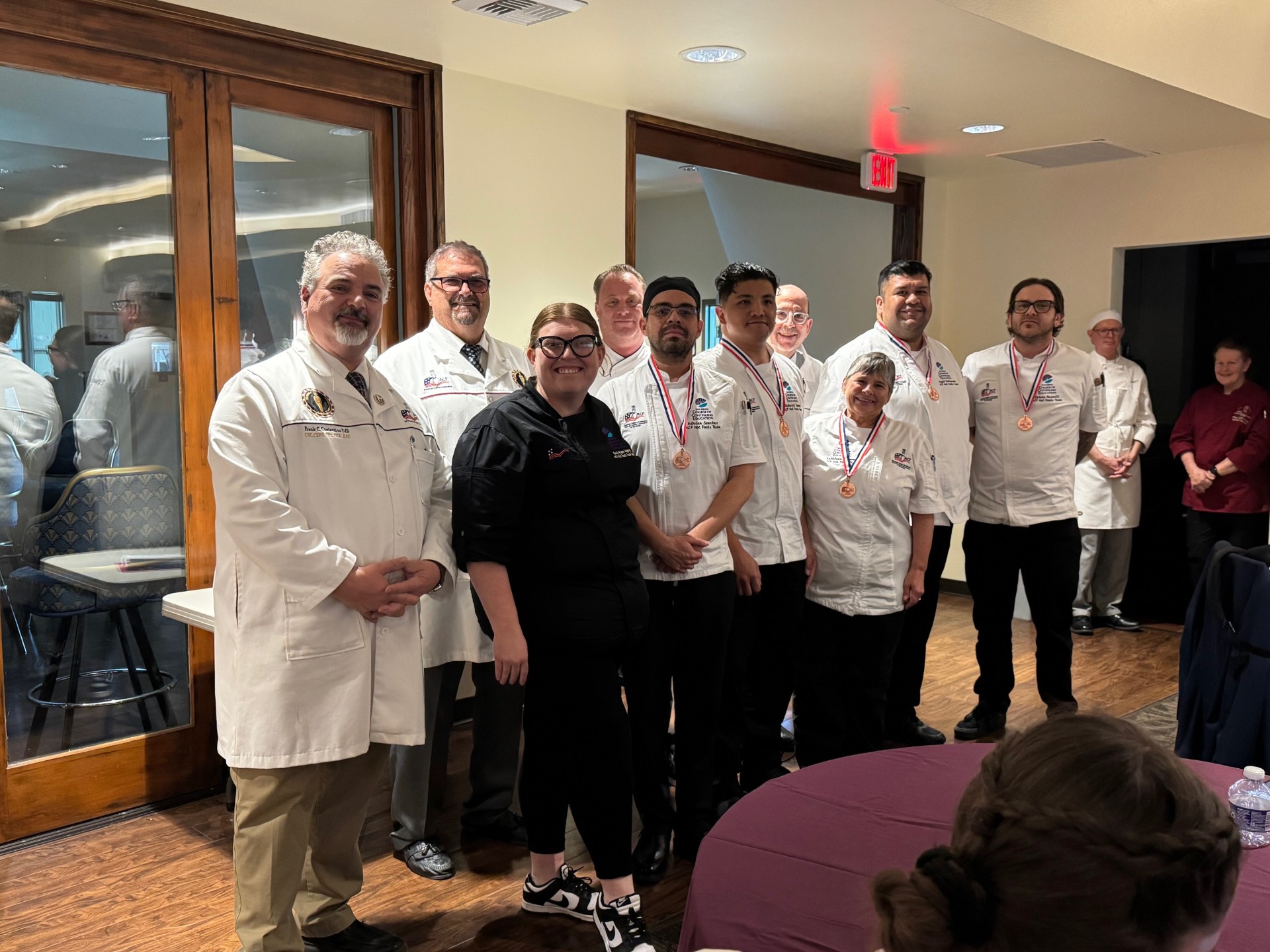Culinary and Hospitality Arts: Expanding Access through Modular Training and Industry-Driven Curriculum
Submitted By: Jesus Rivas
San Diego Adult Education Regional Consortium
Website: https://sdcce.edu/job-training/culinary-arts
Type of Practice: Program Development / Curriculum / Classroom
Program Area(s): CTE / Workforce Prep / Pre-apprenticeship
Region: San Diego - Imperial
Consortia Involved: San Diego Adult Education Regional Consortium
The Program of Practice
The Culinary and Hospitality Arts Department at SDCCE faced a steep post-pandemic decline in enrollment, certificate attainment, and student retention. Between 2020/2021 and 2023/2024, program certificate awards dropped from 110 to 18. In-person enrollments plummeted due to pandemic-related disruptions and infrastructural issues such as pest infestations and equipment failures. Additionally, older adult students and African American students showed lower success rates, signaling equity gaps that needed urgent attention.
The Response
In response, the department launched a robust and data-informed reconfiguration of its instructional model:
• Modular Course Redesign: Reintroduced 4-week Culinary Arts courses (600-hour program) to provide multiple entry points for students, enhancing enrollment, retention, and flexibility.
• Hybrid Format Expansion: Increased hybrid course offerings that integrate online and in-person instruction, aligning with student needs for flexibility and contributing to an 86% retention rate and a near-doubling of end-of-term student counts in 2023/2024.
• Credit-by-Exam Articulation: Partnered with Mesa College for credit-by-exam in Baking & Pastry Arts I & II, strengthening transitions to credit programs.
• Infrastructure Repair & Process Development: Improved kitchen maintenance processes, implemented deep cleaning schedules, and sought to hire instructional lab technicians to ensure a safe, professional learning environment.
• Targeted Outreach: Implemented outreach to local high schools and the Emeritus community, and crafted marketing aligned with course flexibility and career opportunities.
The Unique Features of the Program
• Short-Term, Stackable Credentialing: Offering programs from 100 to 900 hours, including evening and hybrid options, gives students options that fit diverse schedules and career goals.
• Equity-Driven Course Design: The program is incorporating DEIAA (Diversity, Equity, Inclusion, Accessibility, and Anti-Racism) into all courses and SLOs, while also reviewing textbooks, handouts, and Canvas shells to ensure cultural inclusivity.
• Integrated Technology and OER: Canvas-based resources, Rouxbe culinary software, and planned OER development are reducing costs and increasing digital accessibility.
• Community and Industry Partnerships: Industry competitions, advisory board engagement, and outreach to high schools and military recruiters ensure that offerings align with workforce needs.
• Faculty-Led Innovation: Regular faculty collaboration, feedback loops, and professional development support curriculum redesign and continuous improvement.
The Outcome
• Enrollment: Rebounded from 541 (2021/2022) to 926 (2023/2024); headcount increased from 260 to 383.
• Retention & Success: Retention jumped to 86% in 2023/2024, and the number of students completing the term increased from 146 to 486 between 2021/22 and 2023/24. Students receiving passing grades rose from 300 to 502.
• Equity Indicators: Increased participation from older adults and White students; hybrid courses bridged accessibility gaps; emerging gains in API and African American student participation.
• Instructional Improvements: Rouxbe integration improved asynchronous online course quality, and new marketing emphasized flexibility, leading to stronger enrollment and engagement.
• Student-Centered Structures: Progress charts for students, hybrid modality flexibility, and support for DSPS students via lecture recordings all contributed to greater student success.

